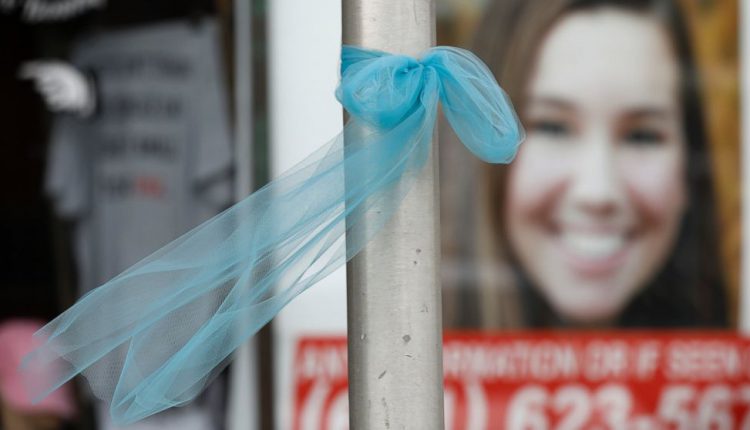What is Being Left Out of the Conversation?
A Closer Look at the Mollie Tibbetts Case
I live in Los Angeles but go to college in Iowa. Specifically, I go to a college in Poweshiek County. And as a woman living on her own for the first time, watching the Mollie Tibbets case unfold was nothing less than terrifying. It was heartbreaking. It was unsettling. Seeing posters of Mollie’s face on every window front, eating breakfast next to townspeople wearing shirts with her missing persons information, and hearing accounts of the most recent search party from local shop owners jolted me back into reality.
I had never felt threatened in my small town before. I walk the length of campus from the library to my dorm without fearing for my safety. I have never clutched pepper spray in my hand or clasped tightly to a set of keys with each piece of cold metal pressed between my knuckles. After July 18th, I suddenly no longer felt comfortable walking through an alleyway only a block between a friend’s house and my apartment. I became hyper-aware of my surroundings. My body was tense, eyes droopy, and head aching after sleeping in an apartment by myself for five days, remaining vigilant during every waking hour. Every noise, every creak in the floor, and every strong gust of wind made dark circles pool beneath my eyes. My safe haven no longer felt safe.
“But let me stress, my fear has nothing to do with the fact that Mollie Tibbets murderer is an illegal immigrant. It has everything to do with male entitlement to female bodies. ”
Mollie Tibbets was murdered because she actively told her killer, “I’m going to call the police” if he continued to follow and run beside her (after getting out of his car to chase her on foot). She set boundaries and occupied space. She said I am here. I am visible. I am not a commodity for you. Yet her active resistance provoked a violent response, one that should have never occurred.
A relative of Mollie’s posted on Facebook: “Mollie was murdered because a man denied her the right to say no.” Her words ring in my ears. I am frustrated not with Cristhian Rivera, but with the ever-present, ever-existing sexism and gender discrepant expectations between men and women which plague our nation.
The issue of male entitlement to women’s bodies is systemic and has existed for years. This is not a new phenomenon. It is just getting more press coverage than ever before. This FBI report shows men are more likely to be violent. Men are more likely to kidnap or abduct. Men are more likely to commit sexual assault. It is no secret that the United States excuses male violence.
But what does this mean for women? Are women expected to be docile, to acquiesce easily and without resistance, to take up as little space as possible? If feminism has been labeled as a “threat,” then feminism is a “threat” to the United States and its patriarchy, right? Men are continually allowed to act without thinking of consequence or outcome. Yet, the same does not hold true for women.
What does this teach young girls? That men are allowed to overlook their presence in room, deem their social capital and worth as individuals, and claim their bodies for their own? No. I say bullshit. No man is entitled to my body. My body is mine to have, share, love, nurture, and care for. No man can do that but me.
But with all of this said, I want to beg the question among the cries for Mollie’s justice and the need for feminism, why is mental health being left out of the conversation?
Mollie Tibbett’s own political leanings, as seen on her Twitter account (@motibbs), are clear in and of themselves. A tweet from June 8th reads “Don’t let the deaths of Kate Spade and Anthony Bourdain be another pair of celebrity suicides. Mental illness is real and can affect anyone. We need to make people feel more comfortable talking about mental health. Be kind and understanding with everyone, including yourself.” If Mollie is thinking about the stigma against mental health, why is no one doing the same for Cristhian Rivera? His mental health was the catalyst for Tibbett’s death. I have yet to see an article discussing potential ways the court will address Rivera “‘block[ing]’ his ‘memory’ which is what he does when he gets very upset.” News articles, no matter right or left leaning, choose to focus on whether or not he should be deported back to Mexico. Will his mental health improve in Mexico? I don’t know. But, my guess is no. And that leaves a high chance that another case of extreme violence could occur again.
Why does this seem like the logical solution? Because it will not occur on our soil? I believe that’s a poor excuse to not address someone’s well-being. The United States is a melting pot, a collective of differently minded and abled people with many unique experiences and personalities. Why not care for each brother and sister as our own? Why not extend empathy for those who live different lives than us?
As I return to school, I hope Mollie Tibbett’s story is widely shared but not dominated by a political narrative pushing for immigration reform. Instead, I hope to hear conversations on campus surrounding the systemic power imbalance between men and women in this country, the stigma against mental health and those who live with it, and proposed solutions on how to make these conversations more accessible to the larger community. I hope to hear words of love and empathy, not words of hate.
Although I do not know the family personally, I would like to send my condolences to them. There is a community locally and nationally rallying behind them and ready to support them. Mollie’s name will not live on in vain.
Until next time witches xx,
Anna
Music snob, over-protective mom-friend, and avocado toast connoisseur.



